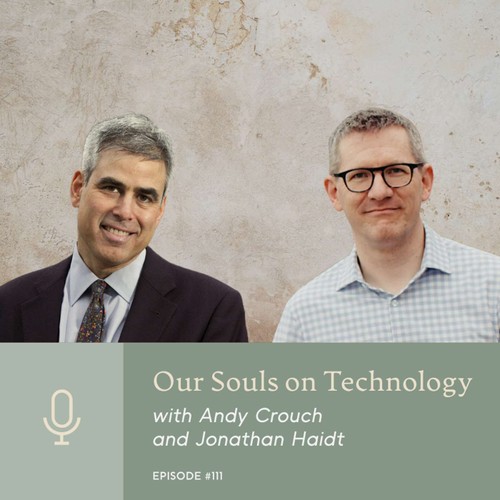
 Trinity Forum Conversations
Trinity Forum Conversations Our Souls on Technology with Andy Crouch and Jonathan Haidt
4 snips
May 13, 2025 In this engaging discussion, Jonathan Haidt, a social psychologist known for his insights into morality and politics, teams up with culture expert Andy Crouch, whose work bridges creativity and faith. They delve into the seductive grasp of technology on human connection, arguing that it distorts relationships and community. The duo critiques social media's role in undermining democracy and mental health while championing the need for trust and ancient wisdom in overcoming modern challenges. Their conversation illuminates the path to reclaiming authentic relationships in a tech-dominated world.
AI Snips
Chapters
Books
Transcript
Episode notes
Social Media Causes Structural Stupidity
- Social media created a sudden 'structural stupidity' in our institutions by silencing dissent.
- Fear of social rejection stopped open debate, impairing collective intelligence and cooperation.
Technology Undermines Human Development
- Most technology focuses on profit and minimization of effort, neglecting the full dimensions of human experience.
- Effort, discipline, and vulnerability are necessary for healthy human development, but technology encourages avoidance of these.
Gen Z's Mental Health Shift
- Gen Z students entering college in 2013-2014 showed sudden mental fragility unlike previous generations.
- Mental health demands soared as social media exposure increased during their vulnerable puberty years.















